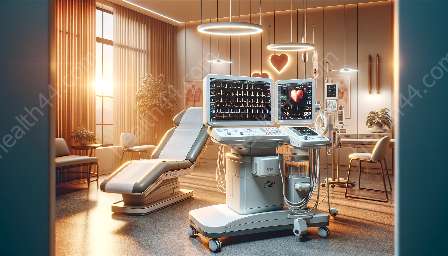Electrocardiography (ECG/EKG) is a vital diagnostic tool that provides information about the heart's electrical activity. ECG/EKG electrodes and leads play a crucial role in capturing this data and are compatible with ECG/EKG machines and other medical devices & equipment.
The Basics of ECG/EKG Electrodes and Leads
ECG/EKG electrodes are small, adhesive patches placed on the skin's surface, while leads are the wires that connect the electrodes to the ECG/EKG machine. The electrodes pick up the electrical signals generated by the heart and transmit them to the machine, which then displays the heart's electrical activity through waveforms.
Types of ECG/EKG Electrodes
There are several types of ECG/EKG electrodes, including disposable and reusable options. Disposable electrodes are convenient and hygienic, while reusable electrodes are cost-effective and environmentally friendly. Additionally, there are specialized electrodes designed for specific applications, such as stress testing or long-term monitoring.
Understanding ECG/EKG Leads
ECG/EKG leads consist of multiple electrodes placed at different locations on the body, with each lead capturing specific electrical signals. Standard leads, such as the limb leads (I, II, III) and precordial leads (V1-V6), provide comprehensive information about the heart's electrical activity from different angles, allowing healthcare professionals to assess various aspects of cardiac function.
ECG/EKG Electrodes and Machines Compatibility
ECG/EKG electrodes and leads are designed to be compatible with a wide range of ECG/EKG machines. It's essential to ensure that the electrodes and leads are compatible with the specific machine being used to obtain accurate and reliable readings.
Integration with Medical Devices & Equipment
Besides ECG/EKG machines, electrodes and leads can also be integrated with other medical devices and equipment, such as telemetry systems for continuous monitoring, defibrillators for emergency cardiac interventions, and ambulatory ECG recorders for long-term monitoring outside the hospital setting.
Importance of Quality Electrodes and Leads
Using high-quality electrodes and leads is critical for obtaining accurate ECG/EKG recordings. Reliable electrodes ensure good contact with the skin, minimizing artifact and interference, while leads with proper insulation and connectors transmit the electrical signals effectively, contributing to the overall accuracy of the diagnostic data.
Conclusion
ECG/EKG electrodes and leads are essential components in capturing the heart's electrical activity for diagnostic purposes. Understanding their types, compatibility with machines, and integration with other medical devices and equipment is crucial for healthcare professionals in providing accurate and reliable cardiac assessments.


